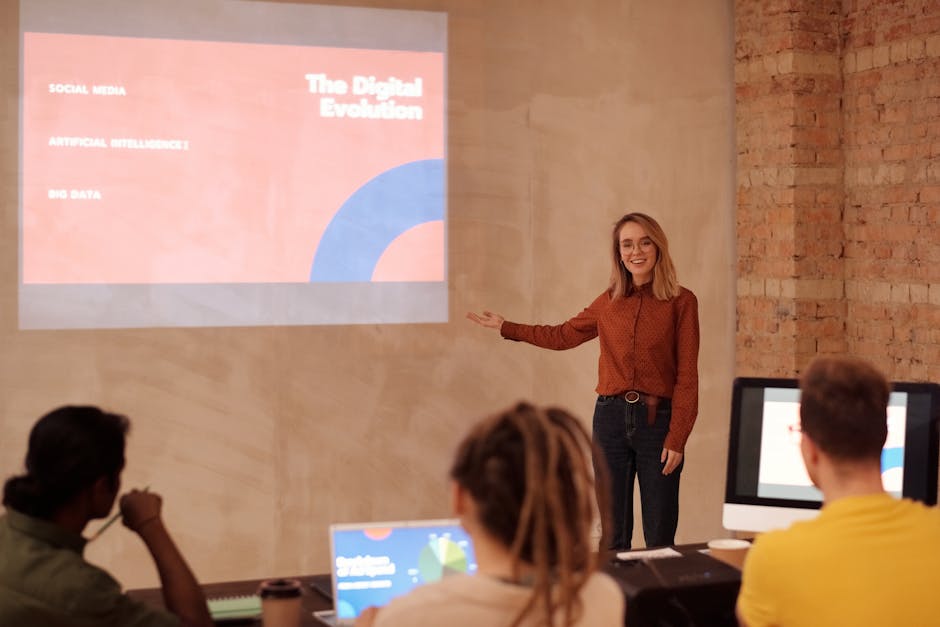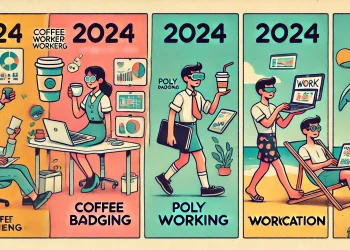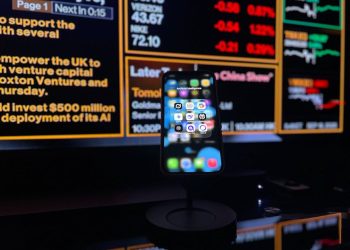No products in the cart.
Transforming HR: How Business Schools Are Embracing AI
Business schools are adapting to the rise of AI in HR. Discover how curricula are evolving to prepare future leaders for a tech-driven workplace.
As the sun rises on a new era of workplace dynamics, the role of artificial intelligence (AI) in human resources (HR) education is becoming increasingly vital. Imagine walking into a classroom where algorithms replace traditional textbooks, where simulations based on real-world data guide discussions about hiring, training, and employee engagement. This is not the distant future; it’s the present reality for many business schools worldwide.
Business schools are in a race—not just to keep pace with technological advancements but to lead the charge in shaping the next generation of HR professionals. With AI tools now capable of streamlining recruitment processes, analyzing employee performance, and even predicting turnover rates, educators are rethinking how they prepare their students for a landscape where technology and human intuition must coexist.

At institutions like the Wharton School at the University of Pennsylvania, courses are evolving to include AI-driven analytics as a core component of HR curricula. Here, students learn not only the traditional principles of human resource management but also how to leverage AI to enhance decision-making processes. “AI is not just a tool; it’s a partner in the decision-making process,” remarks Dr. Sarah Thompson, a professor of HR management at Wharton. “Our students need to understand how to work alongside AI to maximize its potential.”
Meanwhile, at the London Business School, faculty are integrating AI ethics into their HR programs. As algorithms begin to play a larger role in hiring practices, concerns about bias and fairness have risen to the forefront. “We teach students to critically assess the tools they use,” says Dr. James Lin, a specialist in HR technology and ethics. “Understanding the implications of AI is as important as knowing how to use it.” This dual focus on technical proficiency and ethical responsibility is becoming a hallmark of modern HR education.
“Our students need to understand how to work alongside AI to maximize its potential.”
However, the shift towards AI in HR education is not without its challenges. Critics argue that an overemphasis on technology could lead to a devaluation of the human aspects of HR—empathy, communication, and cultural competence. “AI can analyze data and suggest patterns, but it cannot replicate human intuition,” points out Maria Gomez, an HR consultant and former professor. “We must ensure that future leaders don’t lose sight of the human element in HR.”
In response, many programs are balancing AI training with courses designed to enhance soft skills. For instance, the University of Michigan’s Ross School of Business offers workshops on emotional intelligence, conflict resolution, and team dynamics, alongside its AI-focused classes. This holistic approach aims to equip students with the tools they need to navigate both the technological and interpersonal challenges of the workplace.
As the landscape continues to evolve, business schools are also turning to industry partnerships to enhance their curricula. Collaborations with tech companies like Google and IBM allow students to engage with real-world AI applications. Students at Stanford Graduate School of Business, for example, have the opportunity to work on projects that utilize machine learning to solve HR-related issues. “These partnerships provide invaluable hands-on experience,” says Professor Emily Zhang, who leads the program. “Students can see firsthand how AI is transforming HR practices.”
But what does this mean for the future of HR professionals? As AI takes on more administrative tasks, the role of HR is shifting from operational to strategic. Professionals will be expected to interpret data insights and make informed decisions that align with organizational goals. “The future HR leader will need to be data-savvy, adaptable, and, most importantly, human-centric,” observes Dr. Thompson.
Looking ahead, it’s clear that the integration of AI in HR education is not just a trend; it’s a transformation. As business schools worldwide adapt their curricula to this new reality, they are not only preparing students for their first jobs but are also equipping them to lead in an increasingly complex and tech-driven world. The challenge will be to strike the right balance between technology and the human touch—ensuring that the next generation of HR leaders is as compassionate as they are analytical.
Students at Stanford Graduate School of Business, for example, have the opportunity to work on projects that utilize machine learning to solve HR-related issues.
For young professionals eyeing a career in HR, this evolution presents an exciting opportunity. Those who embrace both the technological and human aspects of the field will not only find themselves in demand but will also play a crucial role in shaping the future of work. In an age where AI is becoming ubiquitous, the most successful HR leaders will be those who can navigate the digital landscape while keeping the human experience at the heart of their practice.











